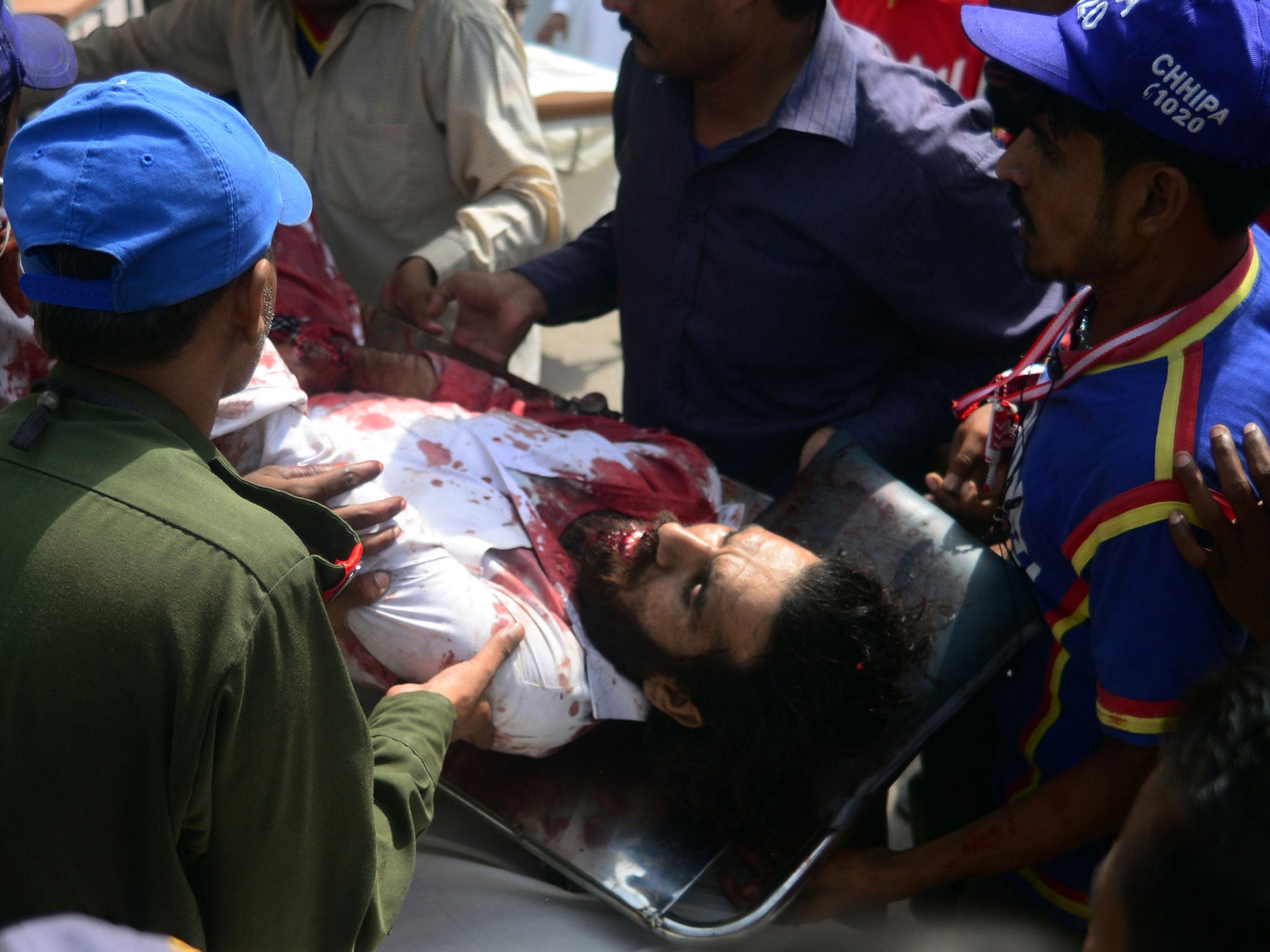Sixteen killed and dozens injured in multiple bombings as Pakistanis go to polls in historic elections

Defying the danger of militant attacks, Pakistanis streamed to the polls today for a historic vote pitting a former cricket star against a two-time prime minister and an unpopular incumbent.
But bombings that killed sixteen people and wounded dozens more underlined the risks many people took just casting their ballots.
The blasts are a continuation of what has been a brutal election season with more than 130 people killed in bombings and shootings. Some are calling this one of the deadliest votes in the country's history.
But despite the violence, many see the election - the country's first transition between an elected government fulfilling its term to another - as a key step to solidify civilian rule for a country that has experienced three military coups.
Twin blasts in the port city of Karachi targeted the political offices of the Awami National Party, one of three secular liberal parties that have been targeted by Taliban militants during the run-up to the election, said police officer Shabir Hussain. Nine people died in the attack and 30 were wounded.
In the northwestern city of Peshawar a bomb exploded outside a polling station, killing at least one person and wounding 10 others, said police officer Mukhtiar Khan.
The threats are such that the government has deployed an estimated 600,000 security personnel across the country to protect polling sites and voters. But many Pakistanis still seemed determined to cast their ballots.
"Yes, there are fears. But what should we do? Either we sit in our house and let the terrorism go on, or we come out of our homes, cast our vote, and bring in a government that can solve this problem of terrorism," said Ali Khan. He was waiting to vote in the city of Peshawar where one of the blasts took place today.
Former cricket star Imran Khan, who has almost mythical status in Pakistan, has challenged the dominance of the country's two main political parties, making the outcome of the election very hard to call. He is facing off against the Pakistan Muslim League-N, headed by two-time former prime minister Nawaz Sharif and the Pakistan People's Party, led by president Asif Ali Zardari.
While Sharif has billed himself as the candidate of experience, Khan is trying to tap into the frustrations of millions of Pakistanis who want a change from the traditional politicians who have dominated Pakistani politics for years.
"I never voted for anyone in the past, but today my sons asked me to go to polling station, and I am here to vote," said Mohammed Akbar, speaking from the northwestern city of Khar. "Imran Khan is promising to bring a good change, and we will support him."
Khan's mythical status grew even larger this week after he survived a horrific fall off a forklift during a campaign event in the eastern city of Lahore that sent him to the hospital with three broken vertebrae and a broken rib. He is not expected to vote because he can't travel to his polling place.
Nobody is sure how effective he will be in translating his widespread popularity into votes, especially considering he boycotted the 2008 election and only got one seat in 2002. Turnout will be critical, especially among the youth. Almost half of Pakistan's more than 80 million registered voters are under the age of 35, but young people have often stayed away from the polls in the past.
It is likely in the province of Punjab, Pakistan's most populous, that this election will be decided. Sharif and Khan have been battling intensely for support of people across the province in a series of large rallies and campaign events.
There is concern that the violence could benefit Islamist parties and those who take a softer line toward the militants, including Khan and Sharif, because they were able to campaign more freely.
The outgoing Pakistan People's Party is likely to fare poorly in this election. Voters are fed up with five years of power outages, rising inflation and militant attacks. The party, which rose to power in 2008 in part by widespread sympathy after the death of party leader Benazir Bhutto, has carried out what many called a lackluster campaign this election.
Their effort has been hampered by threats of Taliban violence and a lack of high-profile figures who could rally the party faithful. Benazir Bhutto's son, Bilawal Bhutto Zardari, is officially the party chairman and had been expected to play a high-profile role in the election.
But he's appeared at few election events, and was not expected to vote because he was out of the country.
AP
Subscribe to Independent Premium to bookmark this article
Want to bookmark your favourite articles and stories to read or reference later? Start your Independent Premium subscription today.

Join our commenting forum
Join thought-provoking conversations, follow other Independent readers and see their replies